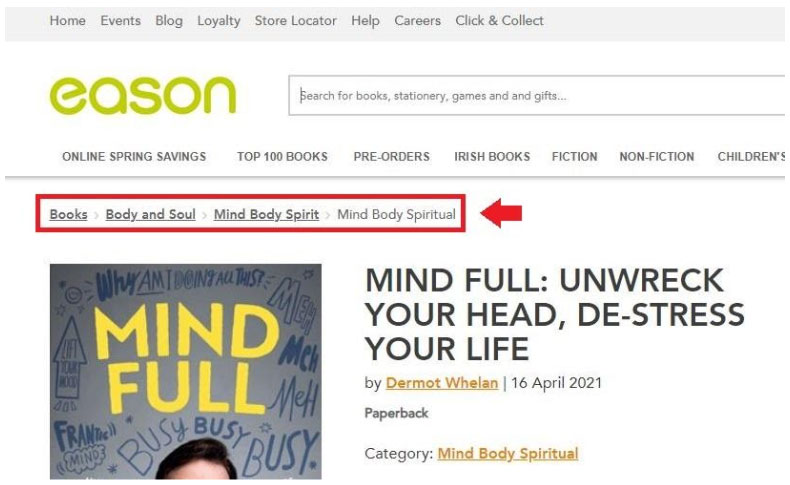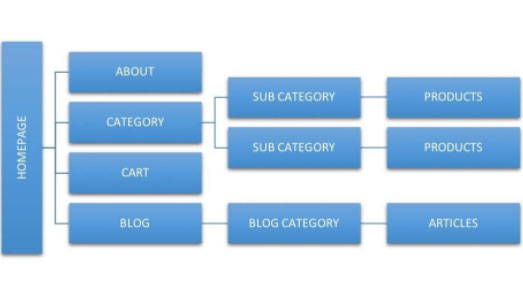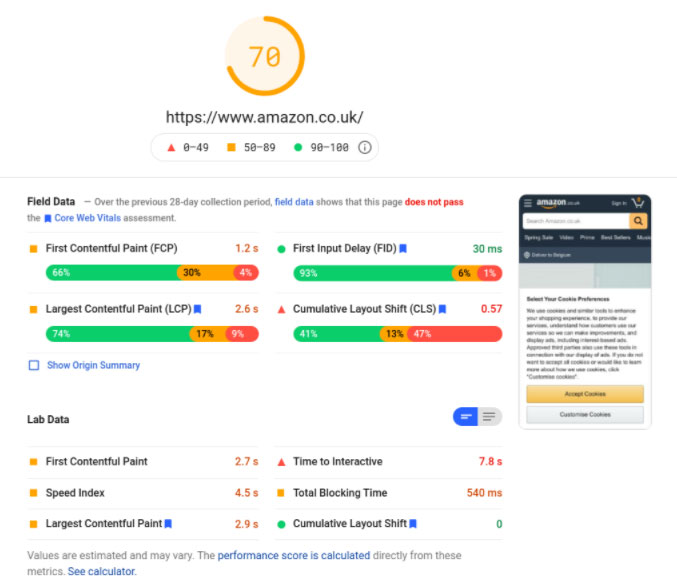As the Coronavirus changes the world around us it brings a new way to interact with people, a new remote working world and of course online shopping.
“Despite a challenging 2020 for retail during the pandemic, new data from eMarketer suggests that worldwide retail e-commerce sales posted a 27.6% growth rate for the year, with sales reaching well over $4 trillion. That tally is projected to reach $5 trillion in 2022.” – https://www.emarketer.com
Internet sales grew during the Covid-19 pandemic, as many people decided to avoid going out to the shop. So why is your company’s website not performing as expected? There may be reasons for this.
The type of content you publish for customers, the way people make online purchases, and how people search for information is constantly changing and will never be static, which is why staying up to date on the latest trends and stats is so crucial to your success.
So, today you will learn how to do SEO for e-commerce and improve your positioning. E-commerce depends even more on good positioning than other sites, since it works with sales. Research has already shown that very few people go to the second page of search engines. Therefore, it is essential to adopt SEO techniques and seek a space among the first ones. The entrepreneur must keep in mind that the search engines are volatile, they change from time to time. In this way, what is useful today may no longer be useful next year.

Analyze the competition
Have you ever stopped to think why your competitors are appearing in a better position than you? It is always interesting to take the time to evaluate the opposing sites. In fact, nowadays there are already tools that allow you to evaluate the keywords used by them. In this way it will be possible to know the language adopted, the information passed on to customers and how the company approaches it.
Obviously, it is not recommended to copy your competitor, but this will allow changes in the way your business is being run.

Create an online presence
Search Engine Optimization (SEO) plays a significant role in creating a strong online presence of any business. The importance of ecommerce SEO best practices shouldn’t be underestimated. SEO for ecommerce websites is something where many online stores are failing miserably, unable to fully exploit the power of organic marketing.
But a question arises, how to use SEO and Ecommerce together?
There is no SEO if there is no concern about making your site seen by search engines. The first action to be taken on e-commerce sites is to start worrying about Google search engines.
Let us show some SEO actions that should be carried out on an e-commerce site:

Product Description
The number one rule of product description SEO is to write for people, not search engines. When writing product descriptions, ask yourself if it helps the consumer:
- Clarify doubts?
- Does it make consumers want the product?
- Help in the final purchase decision?
- Avoid manufacturer descriptions: Don’t simply copy and paste information from your manufacturer’s website. Write new content and rewrite the descriptions of the products sold on your website, making it unique content on the internet.
- Create unique descriptions for each product page, this will guarantee unique content for each page.
- Focus on creating unique terms in the description of products offered by the website.
It can be time-consuming and tiring to write product descriptions but believe me, it’s worth it. The point is to think about what information the e-consumer will want first. So, follow the rules of SEO and try to attract the attention of searchers and consumers.

Keywords
- Create new keywords for each product: As each product has a catalog with a name, price and brand, it must have its own keywords. For each new product offered on your site, it must be added as a new keyword, since most people when searching for a product on the internet will search for the name of the product they want to find.
- Keywords Stuffing: Do not use keywords excessively and try to find the right keywords instead of using all, to it using Google, Amazon, SEMrush, and other SEO and keyword tools.
- Unique Keywords: In order to fully determine the effectiveness of your website, it is interesting to have a number of unique keywords that are found over a certain period of time (seasonality of products). Divide these keywords using pages indexed by Google. This will give your page a good performance, even a small increase in traffic, will mean a big increase in your revenue.
- Use Long-Tail Keywords: 70% of searches use long tail keywords, and they are a goldmine of opportunity because they share the searcher’s intent and mean a buyer is close to the end of his or her journey. These keyword phrases are low competition and highly relevant exact match.
Websites pages/URL
- Design your product (product page) with just two to three clicks from your home page. Many websites place their products in various categories and subcategories, making the product hidden and difficult to find. This is also a way to simplify your URL.
- Avoid using a single session ID in the URL of the site, this creates a lot of duplicate content for the Search Engine.
- Create a product RSS feed, create a main product and introduce it to the relevant product aggregators. This is a way to create links to your product page.
- Create an optimized page for each product brand. Many people when searching for products on the internet, use the brand as a source of search.

Product
- Code your product, let your customer talk about your product. Allowing this expression, you will see how they see and searches for the product they want on the internet, whether it is through slang or otherwise, thus creating a new group of keywords.
- Create pages with product names/ They will say much more than product code pages for search engines. By doing this, your URL will also be personalized and whoever visits your site will not be lost.
- DO NOT USE: www.yourwebsite.com.br/?ID=87488
- USE: www.yourwebsite.com/categorie/keyword
- Create a product RSS feed, create a main product and introduce it to the relevant product aggregators. This is a way to create links to your product page.

Title
SEO is a complex matter that consists of thousands of little details. Anchor text is one of these details.
An anchor is a text you click to move from one internet destination to another; it literally anchors two different locations on the internet together.
While anchors typically link web pages, they can also initiate downloads and link to documents like PDFs or files in Google Drive. That is why you should only click anchors from sites you trust, and hover over the link with your mouse – but don’t click! – to make sure the URL looks legitimate.
The text you choose for anchors is important for a few reasons:
- It tells your readers what to expect before they click the link. Anchor words are THE promise about what is on the other side of the link, so they must be highly relevant.
- It tells Google algorithms what your content is about. Google’s algorithms use your anchor choices to make sure you are not engaging in spammy practices AND to understand the topics you are linking to in your copy.
In E Commerce it is really relevant to check and use: Use attributes Title: The use of the title appropriately for each anchor text, this will provide search engines with more information about the content of your page. Although not as relevant as the anchor text itself, the title attribute “Title Attributes” are ranking factors. Creating the anchor text: Internal links do not say much and mainly do not pass information from the page to search engines, so use the texts on your site to create an anchor text, rich in relevant links.

Site Searches
Optimize site images:
Make sure your products have exclusive images, this will bring you a lot of traffic from Google Image Search. Many customers when looking for products search directly for images, as they often prefer to see the product than just read about it.
Use Image ALT Tags for Images or Graphics – Add descriptions and model numbers to the tags to increase the SEO.
Let’s look at a few examples of alt text for this image of a delicious-looking stack of Cadbury Creme Egg.

Okay: <img src=”pancakes.png” alt=”Creme Egg”>
This alt text is only “okay” because it’s not very descriptive. Yes, this is an image of a stack of pancakes. But there’s more to be said about this image.
Good: <img src=”cremeegg.png” alt=”Cadbury Creme Egg Box of 48″>
Optimize your site’s internal search
Prospects are likely to use an internal search function because:
- They’re used to searching for what they want on search engines and getting it
- They don’t want to waste time manually searching if they don’t have to
This is a relevant factor for e-Commerce SEO, the visitor who finds your website using a search engine, will probably expect your website’s internal search to work very well.
To optimize, you’ll have to make changes. Here are six tips that’ll help you along your way.
1. Study habits: Finding out what your prospects are looking for is the obvious first step.
2. Offer help: Give the button that they can do internal searches. Showing last query results or suggestions for future searches can also help push prospects along the conversion path.


Breadcrumbs
Breadcrumbs are website links that allow users to track where they are on a website and how far they are from the homepage.
You’ll usually find them at the top of a website or just under the navigation bar.
Just like internal links, they help keep users on a website and help them find the information they are looking for.
Here’s an example of breadcrumbs from Eason’s website:


Site architecture
It is necessary to think about the architecture of the site, the way the content is organized. So, it is necessary to put categories and subcategories, so that users can easily find what they are looking for. The layout must be beautiful and not confuse users, searches must be done quickly even by those who have never accessed the site. In fact, some products may even fall into more than one category.
Homepage > Category > Sub Category > Product


Site Speed
For a decade now, Google has considered loading speed as one of the most important items for ranking content. In 2010, the global internet giant had already realized that users were upset by the delay in loading pages on the web. Even today we find several slow sites out there that harm our experience. So, if you have e-commerce, you need to think about page speed.
We can use this free website for it: https://developers.google.com/speed/pagespeed/insights/

Make Your Site Mobile Friendly for Google
This is critical for ecommerce sites. As of 2016, Google has started ranking both desktop and mobile sites by using the metrics from the mobile site. A poor mobile experience will drag down your ranking.

SEO Branding
Add your brand name to everything in your marketing arsenals such as video, emails, and meta tags. It seems a simple idea, yet many companies disregard this technique that can help build their brand. By adding your brand, it will rise to the top of the SERP naturally due to its relevance.
To develop SEO for e-commerce, you need to know a little about the performance of search engines. Your site may not make it to google searches first page quickly, especially if the sector is competitive. This is a job that doesn’t happen overnight. You need to be patient and do it little by little.
However, this is a job that will bring great results over time.
Wrote by Ana Carla Soane
- Twitter rebranded as X
- Basic SEO strategy for beginners
- 2022 Design Relax retrospective:
- Hashtags – The strategy you need for growing your Instagram
- Adobe buys Figma – What to expect now?
- 2021 Design Relax – Retrospect







